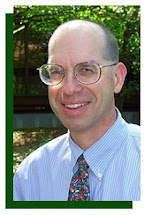I read it again this week and realized that his thoughts address many of the core concepts of performance excellence in the quality improvement criteria of the Missouri Quality Award from a wildlife perspective. Leopold's writing from nearly 60 years ago has important insights for how we conduct our learning and research efforts today to improve the fish, forests, and wildlife in Missouri through our conservation efforts.
A systems perspective. I believe Leopold intuitively understood the core concepts of performance excellence as they have been written recently, and they include:
- visionary leadership
- customer-driven excellence
- organizational and personal learning
- valuing employees and partners
- agility
- focus on the future
- managing for innovation
- management by fact
- social responsibility
- focus on results and creating value
- systems perspective
Leopold's words. Leopold wrote "Much of the confusion about wildlife research arises, I think, from a false premise as to its purpose." He continues "the primary purpose of wildlife research is, in my view, to develop and expand this understanding of the biotic drama. It must, of course, contrive also to keep wildlife on the map, in good quantity, and in as much diversity as possible."
Leopold builds his case for both long- and short-term research by stating "Once in a blue moon research will, by accident, hit upon a discovery of practical value without any preliminary work on fundamentals, but when pursued as a policy, such accidental hits are a losing game."
Leopold was concerned in 1948 that funding for a broad-based, long-term research program based on fundamentals, what he called "deep-digging," was not being supported across the 50 states, and that too much emphasis was being placed on short-term "practical" efforts that produced quick answers.
He wrote "This is why research on most American game species is in a blind alley today. The proof that we are in a blind alley is that we are unable to explain, much less to predict, current events." He continues "in fact it could be said that deer and waterfowl are about the only major game groups in which current ups and downs can be explained, with confidence, in terms of visible causes."
A balanced program to reduce fumbling. Leopold admonishes us with his closing words "What I am asking for is a balanced program, which recognizes that some research jobs are short while others are long, and that neglect of either is poor policy." He proposes "To reduce fumbling is our most important job. If we fail to reduce this fumbling today, the well-springs of funds will dry up tomorrow."
Visionary leadership. In writing "Why and How Research," Leopold certainly places an emphasis on resource managers that can think; managers that can design research and take the time to understand all the components of nature and the different expectations of people to benefit from and experience nature. Leopold's admonition to produce information from "deep-digging" is his call to take a broad, "systems perspective" and to make conservation management decisions that are innovative, based on facts, that focus on results and the future, and that meet the expectations and exemplary performance demanded by a broad-based constituency of hunters, anglers, wildlife watchers, and everyone that understands that the natural world is the foundation of our economic success and quality of life.
Increasing organizational learning with valued employees and partners. I believe Leopold would be pleased at where the staff of the Missouri Department of Conservation have been and where they are going with research on wildlife, and with research on fish and forests.
Leopold, had he had the benefit of the current words, would have said it's our "social responsibility" to take a balanced approach to gathering information, as he clearly indicates in "Why and How Research" when he states that in the 1948 time period, the state of Wisconsin might have to proceed with its long-term quail research project without outside funding because "the value of what we find may extend far beyond quail."
Leopold was concerned about performance, including his own, the performance of the relatively new, at that time, profession of wildlife management, and the ultimate performance of improving fish, forests, and wildlife and increasing the level of understanding of the complex biological relationships of animals and their habitats.
When I sit in a meeting, as I did last week, to hear discussion about the methods of a research project and if it should be funded, I think about "Why and How Research." I think Leopold would be pleased with our attempts to reduce "fumbling." He said it best: "To reduce fumbling is our most important job." And to reduce fumbling, and to increase performance, is what the quality performance criteria is also all about.


No comments:
Post a Comment